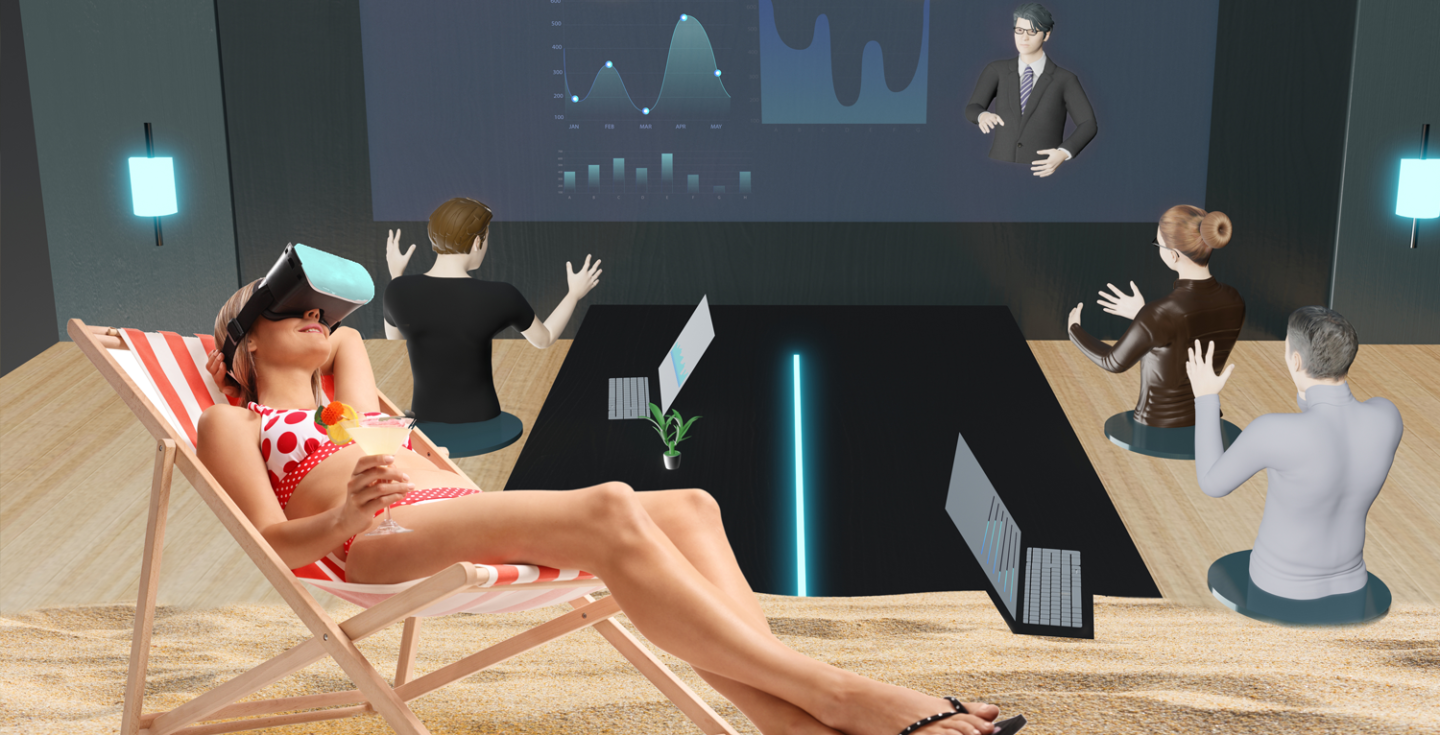Menu

Virtual Presenteeism in the Metaverse
The mass adoption of remote and hybrid working has brought with it concerns around a loss of company culture, a lack of social cohesion and struggles with onboarding. What seems to be emerging as the golden solution to these problems is the metaverse – the virtual reality (VR) space which allows users to interact with each other’s avatars in a digitalised office from the comfort of their home.
However, there are still many HR-related concerns surrounding the metaverse, and one such issue is virtual presenteeism.
The belief that managers and executives will subconsciously favour those they see in the office every day from morning until evening – even if these people are not being productive – is not a new one. And it is rooted in two psychological phenomena; the first being the ‘mere-exposure effect’, which states that the more one person is exposed to someone, the more they start to grow an affinity towards them. This is strengthened by the second, the ‘halo effect’, in which if a manager gets along with a colleague and considers them a nice person, they will also assume they are a good worker.
However, even though simply being present has no demonstrable correlation with the quality of an individual’s output and their overall productivity, a survey from the Chartered Institute of Personnel Development found that 83% of people had observed presenteeism in their workplace.
Now, flashforward to the rise of remote working. Suddenly no one is in an office, and no one is in the eyeline of management without inviting them to a specific video call. By being forced inside, employers could only judge the productivity of their staff based on what they were outputting each day, and this helped significantly reduce the presenteeism ideology.
Until the metaverse comes along.
There is no set science on how much interaction employees can and should be having with the metaverse. As it stands, the most likely approach to it will be a new hybrid model – working partly inside the digital space as an avatar and working from home outside of it in the ‘real world’. But this presents an interesting issue – will presenteeism return in the form of a virtual, avatar-based counterpart?
Naturally, there are going to be some hesitations surrounding the metaverse. A study commissioned by ExpressVPN found that employees reported feeling higher levels of anxiety, suspicion, and confusion about the new digital space. This hesitancy stems from a variety of factors, and one of the most popular is the increased opportunity for surveillance, which in turn can lead to employees feeling like there is a lack of trust being placed in them. This is coupled with general health concerns, as using VR too much can lead to increased anxiety, depression and ‘brain drain’.
So, it would not be a leap to assume that some will be reluctant to interact with the metaverse daily, and yet will this mean that those who opt to use the metaverse less will be at risk of losing out on promotional opportunities? The space allows for the recreation of the office setting in a virtual world, so those logged into it can once again be seen and interact with their superiors on a more regular basis, which may see a return to the pre-pandemic ways of presenteeism.
And with a global study by Cienna finding 40% of businesses thinking they will move to more immersive and VR-based environments in the next two years, identifying this rise of digital proximity bias now can allow employers to start working with their HR teams to figure out how to approach this problem at its root.
That’s where we can help. The metaverse is quickly gaining popularity in the working world and is making its way towards ‘new normal’ status. If you would like guidance on how to start preparing and navigating this digital world, you can contact us here.
Copyright OrgShakers: The global HR consultancy for workplace transformation founded by David Fairhurst in 2020



